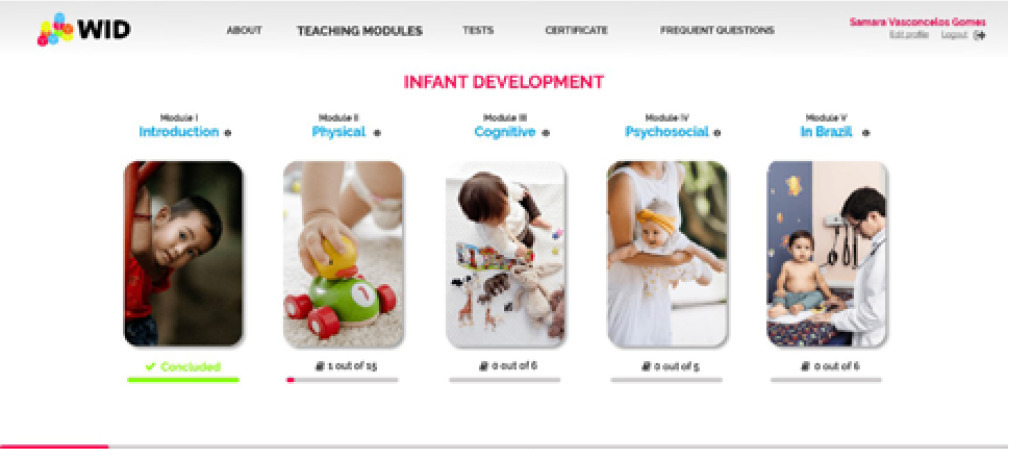-
ORIGINAL ARTICLE05-09-2022
Wise Infant Development®: creation of a software for teaching in pediatric nursing education
Revista Brasileira de Enfermagem. 2022;75(5):e20210466
Abstract
ORIGINAL ARTICLEWise Infant Development®: creation of a software for teaching in pediatric nursing education
Revista Brasileira de Enfermagem. 2022;75(5):e20210466
DOI 10.1590/0034-7167-2021-0466
Views0See moreABSTRACT
Objectives:
to create a software application for nursing education on child development assessment.
Methods:
this is a methodological applied research developed in three stages: analysis, design, and development. Product quality characteristics from the ISO/IEC 25010 standards were adopted. The programming language used was JavaScript. The educational software was developed based on a constructivist cognitive theory.
Results:
it was possible to create the software from the following quality metrics: functional suitability, reliability, usability, performance efficiency, compatibility, security, maintainability, and portability. The technology addresses child development in physical, cognitive, and psychosocial domains and how this assessment should be carried out in Brazil. The software has pre and posttests, 5 learning modules, certificate issuance, support for doubts, and an administrative panel. Final Considerations: it is concluded that the software adds to the existing tools for child development monitoring, facilitating students’ knowledge acquisition in promoting child health.

-
REFLECTION04-22-2020
Thematic content analysis using ATLAS.ti software: Potentialities for researchs in health
Revista Brasileira de Enfermagem. 2020;73(3):e20190250
Abstract
REFLECTIONThematic content analysis using ATLAS.ti software: Potentialities for researchs in health
Revista Brasileira de Enfermagem. 2020;73(3):e20190250
DOI 10.1590/0034-7167-2019-0250
Views0See moreABSTRACT
Objective:
to describe the most important tools of ATLAS.ti Software and to associate them with the procedures of Thematic Content Analysis.
Method:
It is a theoretical reflection of the Content Analysis phases of Laurence Bardin, associating them with software tools Atlas.ti and showing its usefulness for data analysis in qualitative research.
Results:
historical contextualization and the available resources of Atlas.ti software with presentation of health research involving the phases of thematic content analysis.
Final considerations:
The Atlas.ti software assists in the accomplishment of the thematic content analysis being this promising association in health research.




